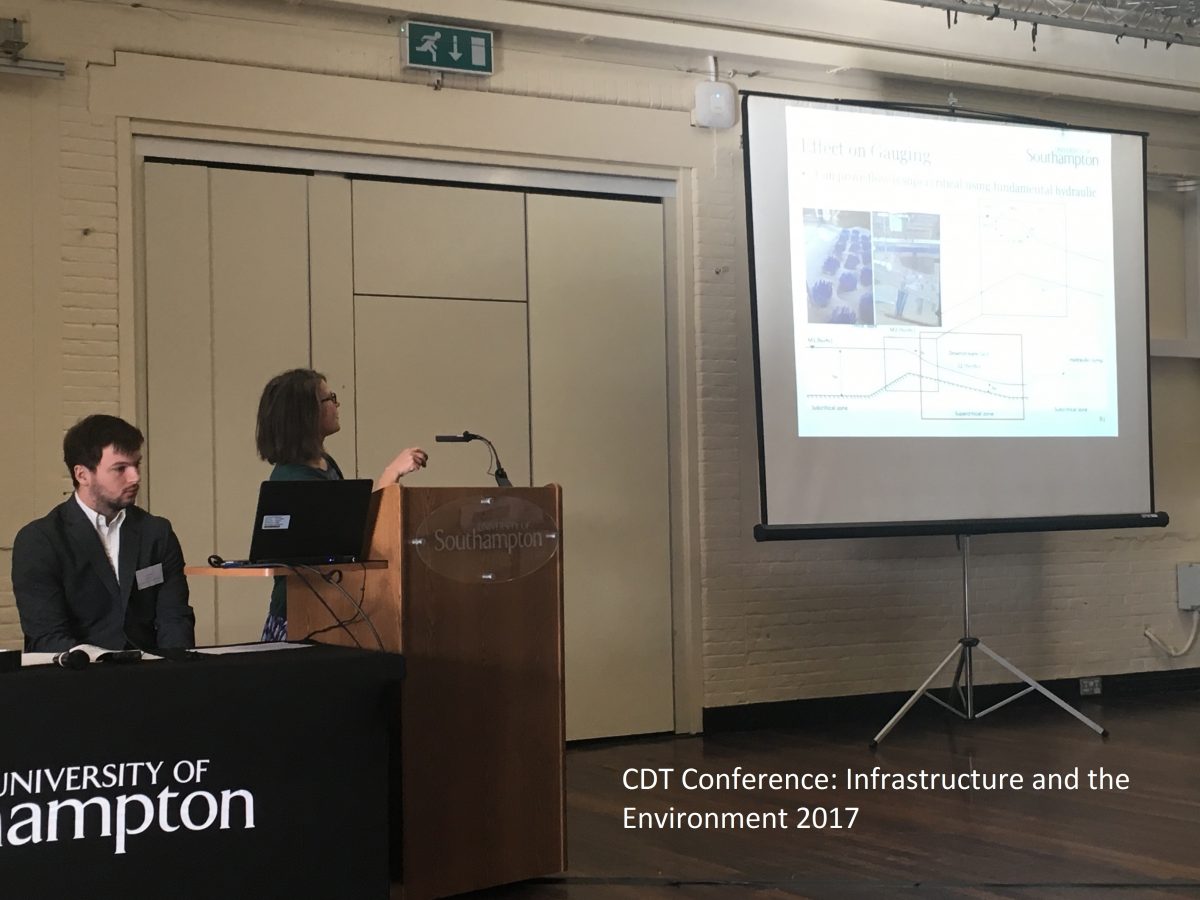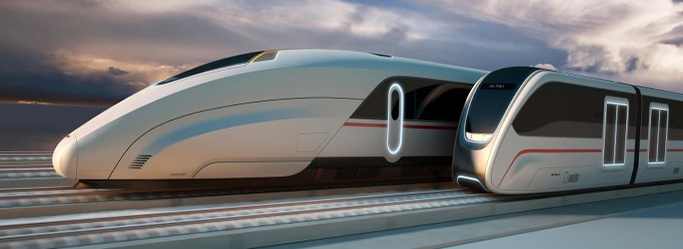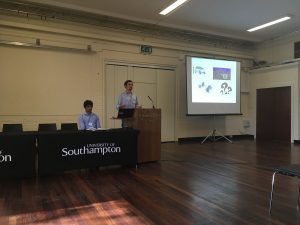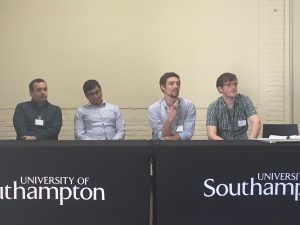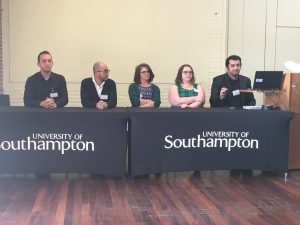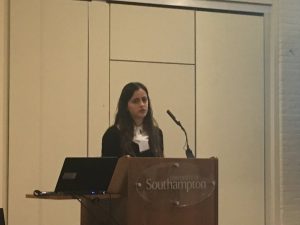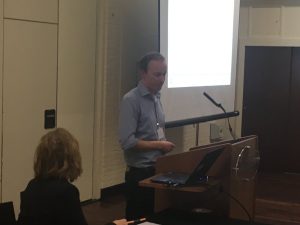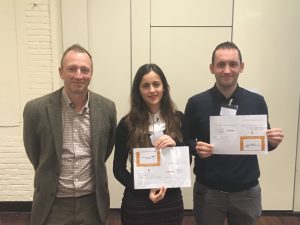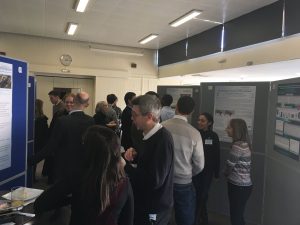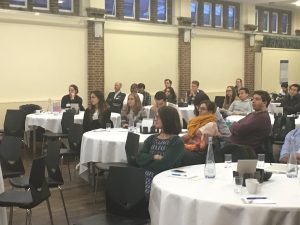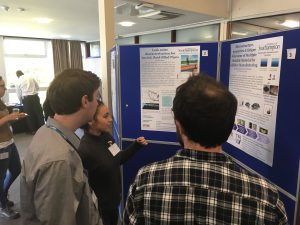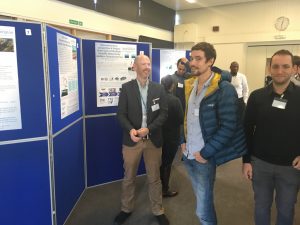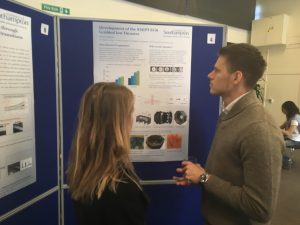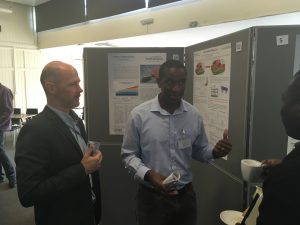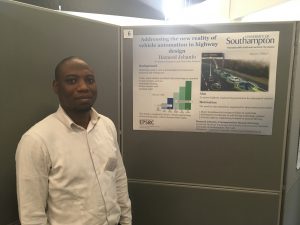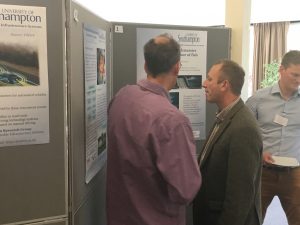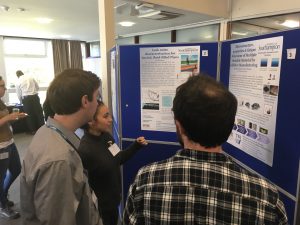The Centre for Doctoral Training in Sustainable Infrastructure Systems held its annual conference on the 8th November 2017 titled “Infrastructure and the Environment“. The conference is an integral part of the CDT’s annual programme of events and is organised and facilitated by current first year students.
The CDT conference team would like to thank all speakers, poster presenters and attendees for being part of the Infrastructure and the Environment 2017 conference. The presentations covered a wide range of topics within the three key elements of sustainability: water, transport and energy. The conference started with a warm welcome from Prof. Paul Kemp, director of the CDT-SIS. Following that, Dr. Dhivya Puri, technical lead in Research&Development within Fiberight Ltd., introduced the concept of circular economy and waste utilisation for energy recovery. Later on, the water section was opened with a presentation by Prof. Ian Williams and Rebecca Kennedy on how Southern Water and University of Southampton’s International Centre for Environmental Science collaborate towards the achievement of a circular economy in the water sector. The water section also included presentations from PhD students, mainly from the CDT-SIS, who did an excellent job engaging with the audience during the questioning session. During lunch, attendees had the opportunity to network with industrial partners, meet new CDT members and discuss the student posters. After lunch, everyone was very excited to learn about the “iBike” prototype by Dr. Ioannis Kaparias, which could help improve cyclists safety. During this section, attendees also learned about how human factors and psychology can help with fuel efficiency while driving a car. The energy section was opened by Prof. Patrick James who presented the topic of Future Cities.This was followed by a few PhD students presentations on topics such as hydrogen production, biogas from solid waste, fast charging electric vehicles and redox flow batteries.
Click Here to Download the Conference Booklet
The conference addressed the following key issues.
Water
Water is arguably the world’s most essential natural resource; however, freshwater systems are under threat from human activities, resulting in habitat modification and loss of biodiversity.
Man-made infrastructure has, and will continue to, modify waterways and have complex effects on the hydrological cycle. These occur through a number of means including; water extraction, dams, agriculture, leisure activities, industrial contamination and transport infrastructure.
Managing the freshwater environment is a priority, balancing human resource use and ecosystem protection.
Transport
Passengers and freight movement has entered an era of high-speed traffic where swiftness, energy efficiency, safety and comfort are key strengths that give vitality to the transportation mode. Nowadays, vehicles are becoming faster and heavier which demands more energy, and results in higher carbon costs. A successful transport project should bring along socio-economic and environmental benefits by increasing the number of passengers and reducing delays through the decongestion of highways, and the enhancement of urban and regional industrial competitiveness. The aim of the transport research group is to investigate new forms of environmentally friendly transport infrastructures that rely on sustainable energy while meeting passengers and freight demand.
Energy
As the global demand for energy increases, the sustainability of energy generation and distribution becomes more important. The transition from fossil fuels to sustainable energy technologies requires a large-scale integrated and interconnected energy infrastructure. This should be developed by means that reduce the environmental impact compared to current methods while also optimising cost and resilience. Renewables and novel energy storage systems are the key to control carbon emissions and decelerate climate change.
This section focuses on the development and implementation of sustainable energy systems within the environment, and the infrastructure that accommodates them.
Images from the 2017 CDT SIS Annual Conference
